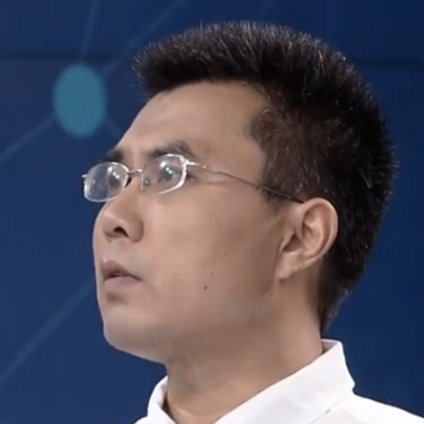JD Vance, Drowsy in the American Dream
Since the author of “Hillbilly Elegy,” Vance, became Trump’s vice presidential candidate, his past remarks have been dug up, including his mockery of Harris, AOC, and other Democratic elite women in his perspective. He called them “cat ladies” who don’t raise children but only pets. These remarks are music to the ears of the conservatives.
 Republican vice presidential nominee JD Vance said in 2021 that Vice President Kamala Harris is part of the “childless cat ladies” who have no stake in America’s future and are “miserable” because they are not parents.
Republican vice presidential nominee JD Vance said in 2021 that Vice President Kamala Harris is part of the “childless cat ladies” who have no stake in America’s future and are “miserable” because they are not parents.
The other day I asked where Krugman is, for Harris and those like her are useless in arguments with the conservatives. But Krugman, sharp-tongued Krugman, he’s the fighter. On a good day, you can expect a Zizek-style delivery from him. I still remember how, ten years ago, he likened the conversatives to zombies for their shared passion in returning every once in a while to prove their relevance.
As expected, Krugman’s public castigation of Vance came quickly, but his New York Times column didn’t live up to the expectations.

First, let’s talk about the upside of the article. Krugman is sharp at identifying a discrepancy between Vance the writer and Vance the politician. Vance the writer asks why people in the Rust Belt abandon their ambitions, fall into downward spirals, and choose drug use at home over good job opportunities. In “Hillbilly Elegy”, Vance didn’t attribute what he perceives as deficiencies in morale–deficiencies that are incurable by government’s support policies– to the external environment and the government. Instead, he attempts to demonstrate the accessibility of success for young people of the Rust Belt by using his own experience and examples of other some successful people.
But Vance the politician says otherwise. Now Trump’s vice presidential candidate,Vance is blaming China’s manufacturing capabilities and immigrants for the job loss among white Americans. Krugman finds Vance intolerably hypocritical.
I don’t think Vance is hypocritical.
In “Hillbilly Elegy”,Vance notes that with the relocation of the steel giants, the prosperous life the working class once enjoyed faded away. And following that, the towns lost big stores too because people’s dwindling income no longer support shopping in these big stores. Right here, I see a precursor to his later attacks on China and immigrants.
I read Vance discrepancy as his nuanced understanding of social issues. He admits that the government and the environment play a role, but he is skeptical about how effective the government’s support policies can be based on his own experience. For example, in case of child abuse, the government can legally deprive the parents of custody and send the child to a foster family. Vance strongly opposes this approach, believing that the policy does not take into account how large families works. In his own case, although his mother was terrible,, he still had his grandparents, aunts, and sisters to provide care. He didn’t want to go to a strange foster family, so he lied in court, saying that his mother did not abuse him, so that he could stay and accompany his beloved grandmother.
 “Hillbilly Elegy” is a 2020 drama film based on J.D. Vance’s memoir, following a Yale law student reconnecting with his Appalachian family roots.
“Hillbilly Elegy” is a 2020 drama film based on J.D. Vance’s memoir, following a Yale law student reconnecting with his Appalachian family roots.
I also read an overtone: You the last generation, you the people without a family and children, you don’t hold the keys to intricate familial problems, regardless of good intentions. Thinking back to his mockery of Harris and AOC, I don’t think he’s just bashing feminism, but chastising the inexperienced for holding immense power. Just as Chinese people will blame bureaucrats who never laid foot in factories or fields for formulating industrial and agricultural policies, which are often detached from the real-life practices.
When Vance was finally freed from the nightmare of high school, he enlisted in the military due to a lack of confidence in facing college right away. After four years of training in the Marine Corps, Vance acquired the perseverance and stamina vital for later stages of life. He then applied for Ohio State University, and claimed to only sleep 3 or 4 hours a day in his undergraduate study. He fell seriously ill during this time, but ended up completing his Bachelor’s degree ahead of schedule before admitted into Yale.
Vance’s fault lies in his ignorance of the structural contradictions of the United States and is the intrinsic problems of the “American Dream”..
He believes in the righteousness of the “civilized” world represented by Yale, and identifies with the upper social network in Yale, of which Krugman is a member of!
In his view, unequal access to the “civilized” world is the bane of the suffering borne by youth in the Rust Belt. It never occurred to him that the “civilized” world itself may be the bane of the suffering borne by the United States and the world.
But as Chinese people, how can we blame him? He never studied the Marxist theory like we did. And even if he did, could he still become a senator if he dared to challenge US’s institutional arrangements? I’d say that even Bernie Sanders, who is known as a socialist, will never go so far as to highlight the fundamental institutional problems of the United States.
Krugman calls for everyone to take a closer look at Vance’s book, a process Krugman believes will lay bare Vance’s discrimination against his fellow “hillbillies” because Vance attributes their failures to themselves.
On the contrary, I think that by saying this, Krugman appears either as a liar, or a man whose reading comprehension ability is compromised by party affiliation. My feeling is that in writing the memoir, Vance comes from a place of sincerity, rather than condesending superiority. He details the warmth and pain intertwined in family life, and the traps his relatives and fellow “hillbillies” repeatedly fall into without resorting to self-help. He arrives at the conclusion that families with stable temperaments can best benefit the growth of children. Too much “hillbilly” style volatility and explosiveness lead to oversensitivity and overreaction, which haunted Vance for a long time until he grew out of it with the help of his mentors and his wife.
In order to help young people who are going through similar experiences, Vance didn’t hold back in sharing his memories of embarrassment or trauma and his way of getting over them. That include the moment when he wanted to kill his mother, and the moment in the social occasion of Yale where he made a scene for not being able to distinguish between purified water and carbonated water. He brought to light the unspoken rules to the Rust Belt youths isolated from the outside world. He is grateful to professors like Amy Chua who has provided guidance to him, and wants to of guidace to others through participating in various public welfare activities.
At the end of “Hillbilly Elegy”, the protagonist had dinner with a 15-year-old boy named Bran in his hometown of Middletown, through which he keenly discovered root of the anxiety and timidity of the boy–his drug-addicted mom. I was deeply touched by the book’s attention to humanity.
Krugman obviously considers himself someone who understands the big-picture problem, saying that Biden’s bills are formulated with the employment of the Rust Belt in mind. One person in the comment area ridicules that any embazzlement by Washington politicians would dwarf the amount appropriated to the Rust Belt by the Biden administration.

I have no interest defending Vance. I write to highlight the fact that Vance, the modern-day Great Gatsby in America, is worth acknowledging for his representativeness.
There are two Vances, the Yale Vance and the hillbilly Vance.
The Yale Vance views the world through the lens of the elite culture dictated by Krugmans. This is a culture that defies self-reflection when it comes to the structural contradictions of the United States, and buries its head in the sand by scapegoating China or immigrants.
But the hillbilly Vance harbors a soul that doesn’t allow a blatant overlook of his real life experience and the problems gnawing his hometown. He has no way out but to faithfully write down the painful details of his story.
It’s the entrenched American ideology that hindered him from producing a more brilliant analysis of these materials. But that’s enough. Just like how Marx praised Balzac, although his thought was of a royalist, the materials composed of “Human Comedy” were rich enough to reveal the connotation of capitalism.
To be honest, if you’re really going to engage in street-level cursing, Krugman is not the right person. Vance used the issue of childbirth to criticize several female Democrats, which, if it were on the Chinese internet, would be decapitated by populist feminists. One could learn from the kongfu of cursing on the Chinese internet, which combines the essence of Wizardization of contemporary American feminist theory, the quintessence of Chinese traditional culture, the rampant of apocalyptic individualism, and so on. Oh, I won’t say any more.
 “The World on Fire” is written by Amy Chua, who mentored J.D. Vance, the author of “Hillbilly Elegy,” during his time at Yale, greatly influencing his perspectives and writing.
“The World on Fire” is written by Amy Chua, who mentored J.D. Vance, the author of “Hillbilly Elegy,” during his time at Yale, greatly influencing his perspectives and writing.
I don’t intend to add fuel to the fire.In this “world on fire” , whose thoughts are not wavily and twisting?
In fact, Krugman’s diatribe against Vance exposes a tacit agreement between the two parties-scratch the surface, don’t touch upon the fundamental issues of the United States.
The one that touches upon the fundamental issues of the United States is, of course, the Eastern power. But you don’t seem to like it, really?
https://mp.weixin.qq.com/s/83rEGQ5BgDm_BEeEICzmJQ




